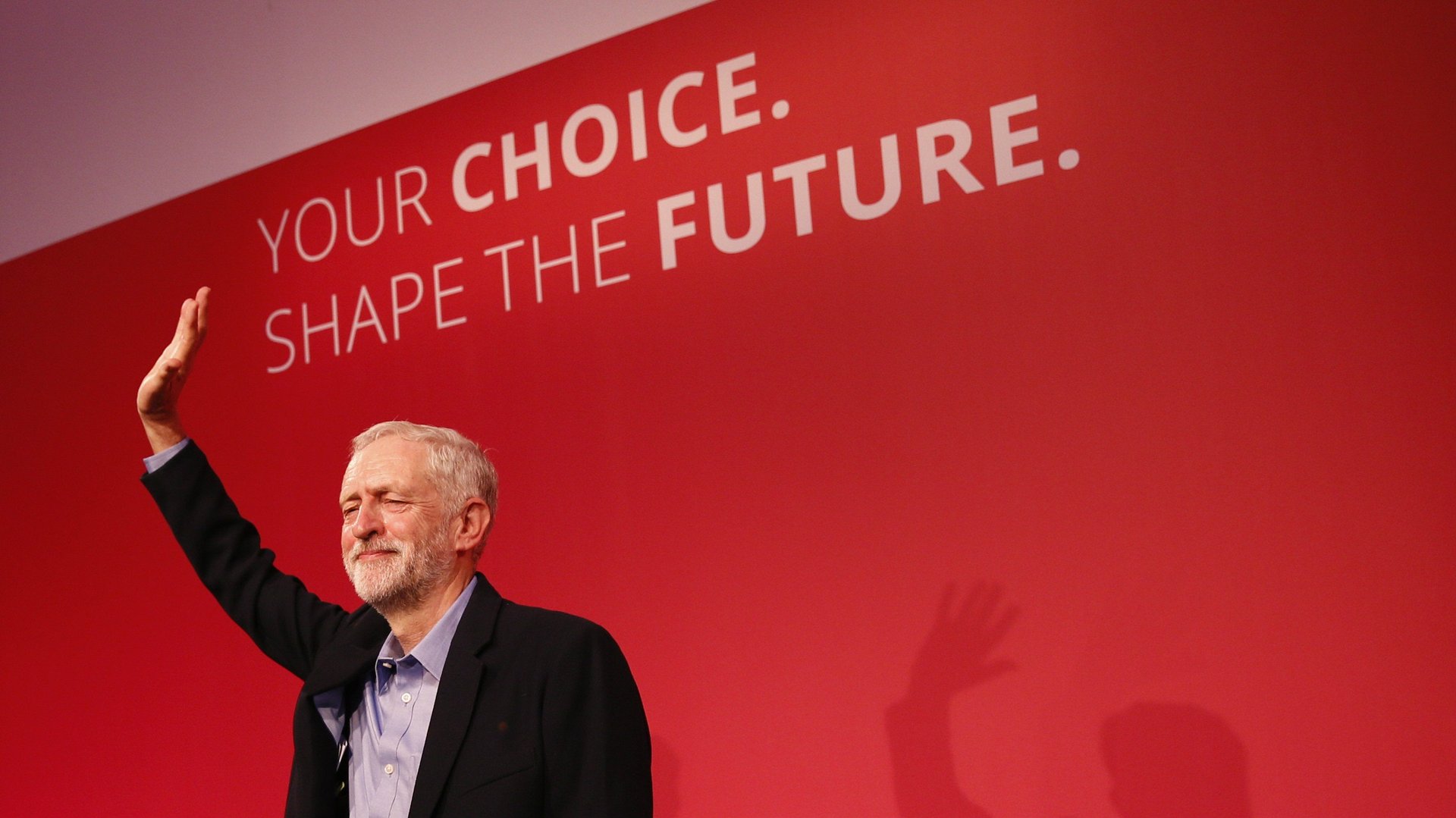Jeremy Corbyn begins his “radical” leadership by hiring a team of white men
Since a self-described socialist was elected to lead the UK’s main opposition party, much has been made of his radical views.


Since a self-described socialist was elected to lead the UK’s main opposition party, much has been made of his radical views.
Jeremy Corbyn, Labour Party leader as of Saturday (12. Sept.), is in favor of nuclear disarmament, a “maximum wage” for overpaid executives, and printing money to finance public transport projects.
But he’s not unconventional enough to hire women or non-white people in the most powerful political roles.
Corbyn announced his shadow cabinet (the team of politicians who decide the Labour party’s key policies) on Sunday (Sept. 13), and stuck to a monotonous white-male theme for the top jobs.
The leader, deputy leader, shadow chancellor (who’s in charge of economic issues), shadow home secretary (who oversees home affairs), and shadow foreign secretary of the Labour party now look remarkably similar. Twitter reacted with fury.
Male dominance in the powerful fields of politics, media, and finance is so widespread that it’s easy to become desensitized. But make no mistake, Corbyn’s preference for hiring male colleagues is yet another a sign of the persistent sexism that we still haven’t banished.
Men are consistently judged to be more skilled than women because of unconscious bias (pdf). More than 65 years after Simone de Beauvoir’s The Second Sex was published, men are still the default image of competence, and women are a secondary alternative.
As someone in a position of great power, Corbyn should have actively countered his subconscious prejudice and worked to include women. As it is, women’s issues are reaching crisis points in education (sexual assault in UK schools and the millions of girls denied education worldwide); the workplace (the gender pay gap in the UK is still at 19.1%); international geopolitics (rape as a weapon of war); and criminal justice (the tiny fraction of rapists sentenced to prison)—precisely because they’ve been ignored for so long.
By the same token, it’s not acceptable for Corbyn to surround himself with white politicians. Roughly 13% of British citizens are Asian or black, and 23 of Labour’s 232 MPs are non-white. Corbyn appointed Seema Malhotra and Diane Abbott, both non-white and non-male, to more junior political roles. But his choices for the senior jobs shows a lazy acceptance of the traditional picture of power.
Following Corbyn’s selection of cabinet ministers, the Labour leader has been accused of “brocialism”—a term used to describe sexism within the radical left. He cares about social justice in theory, it seems, but not enough to take credible action.
Corbyn campaigned for a “new kind of politics,” but by failing to challenge the patriarchy, he has broken his promise on his first day in power.